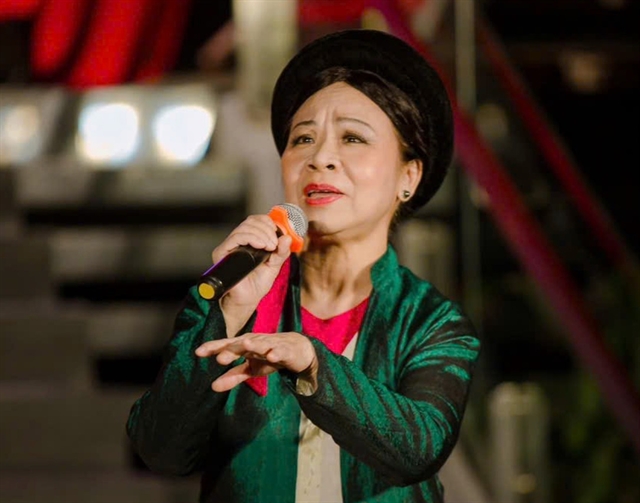 Inner Sanctum
Inner Sanctum
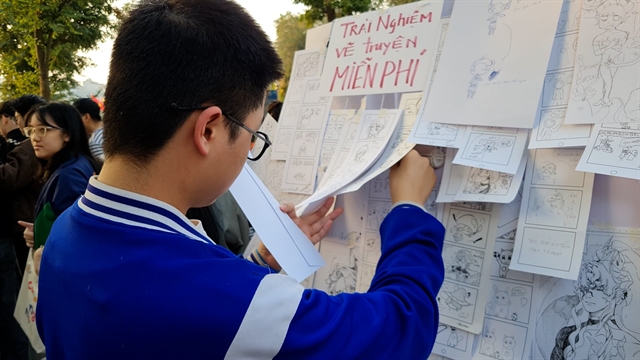
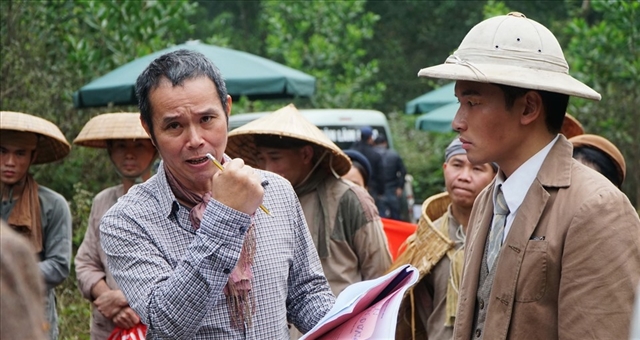 |
Director Bùi Tuấn Dũng (left) talks with actors about a scene during filming TV Series 'Bình Minh Phía Trước'. Photo of the TV series
Seven years after his TV series Đường Lên Điện Biên (Road to Điện Biên), director Bùi Tuấn Dũng is back in action with the 10-episode work Bình Minh Phía Trước (The Dawn Ahead) about Việt Nam Communist Party General Secretary Nguyễn Văn Cừ. The series was screened on VTV1 every weekday from July 6 to celebrate the late leader's 110th birthday.
Dũng talks with Hương Nhu about his filmmaking process and interest in historical movies.
Inner Sanctum: Bình Minh Phía Trước is about history and a real person, difficult topics in filmmaking. You seem to have a fair bit of experience in this genre?
It is the third TV series depicting a person's life that I have made. Previously, I made Những Người Viết Huyền Thoại (The Legend Makers) about Army General Đinh Đức Thiện and Thầu Chín Ở Xiêm (Hồ Chí Minh in Siam) about President Hồ Chí Minh.
Since I was a student, I've sold scripts. I have written many scripts, many of them on history and people.
Writing has become my habit and passion. Whenever receiving a movie script, I always try to research and rewrite it carefully before doing the director's job. I believe this is a good habit.
For this series, I spent a lot of time making up the outlines but was quick to write the script. Thanks to my long time researching classical literature, I met with almost no difficulty in writing the dialogue.
Meanwhile, we had to choose suitable scenes or set them up to match the concepts. My film designers had to work really hard. It was the same for staff in other areas, such as make-up.
We also had to adjust our timetable when the pandemic was spreading. We made plans so that we could avoid unnecessary risks.
Inner Sanctum: Is there anything special about making films about politicians? An element of fiction is surely unavoidable, but with portraits of leaders, you cannot show any scenes of offence or disrespect.
Every milestone in his (Nguyễn Văn Cừ) life is real and remains in my film. I referred to details during the same period to cross-check and connect the events.
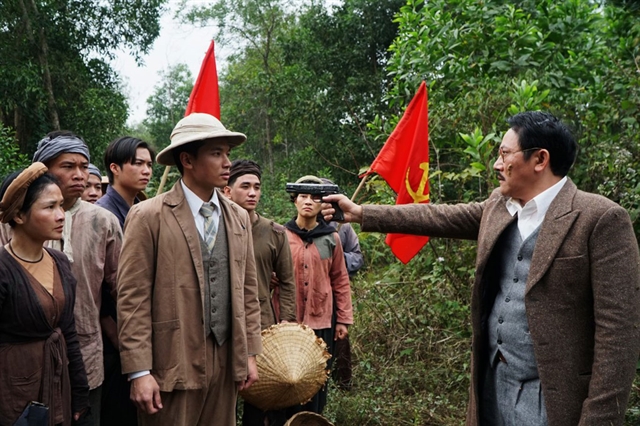 |
'Bình Minh Phía Trước' tells story of Party General Secretary Nguyễn Văn Cừ. — Photo of the TV Series crew
The characters in his family are the same, and the true story was fascinating enough, so there was no need to add or subtract any details.
However, apart from Cừ and his family, who are real, all other characters in his village, school and society are fictional. They were fictional to create conflict and make more drama. They were also used to soften the hard details that movies on this subject often suffer from.
I put a lot of effort into the characters, both the real and fictional, building them up with cultural details, personalities, and thoughts in accordance with the times so that the film's plot moves smoothly and has a sense of purpose.
Inner Sanctum: How is a portrait of Party General Secretary Nguyễn Văn Cừ built into your film?
When I researched Nguyễn Ái Quốc (young Hồ Chí Minh) for the movie Hồ Chí Minh in Siam, I collected many documents about historical figures of this period, including those about Party General Secretary Cừ.
He was one of the Vietnamese revolution's most talented and exemplary leaders. He was voted the Party General Secretary at the age of just 26.
He lived in the time that Western philosophy was introduced to Việt Nam, along with democratic movements from France, which spread and strongly influenced colonial Indochina.
The movie began by featuring the life of a different class of people living in a village in the Kinh Bắc region (Bắc Ninh Province and the neighbourhoods) during the war, around the 30s and 40s of the last century.
Vietnamese people were under the oppression of the French colonialists, the Japanese imperial army and the indigenous feudalist authorities. They also suffered at the hands of local bandits.
These affairs directly affect Cừ, a strong and enthusiastic young man who began taking part in revolutionary activities at the age of 15.
Documents that he translated and works he wrote, especially the establishment of social organisations in the area where he worked, proved his erudition and extensive knowledge. He was a strong, energetic and brave man.
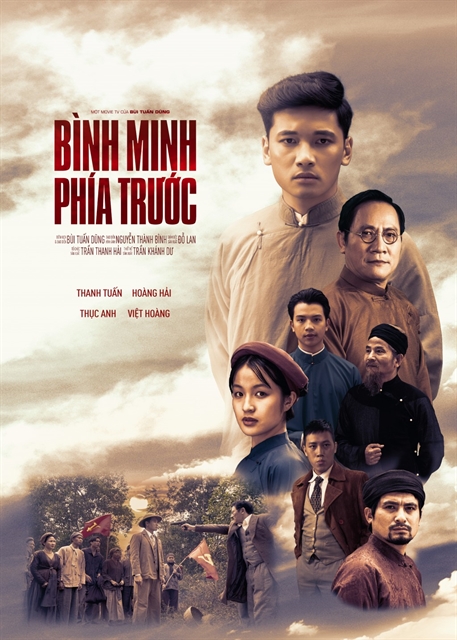 |
A poster for 'Bình Minh Phía Trước'.— Photo of the TV Series
I did not try to imitate or illustrate a leader's portrait as described throughout history. I told his story through social conflict in his cultural and political life. I did not need to work on his character too much. History did the job well.
Inner Sanctum: How do you cast actors for your movie?
Since I began writing the script, I also hunted for the main actor and found him one year later.
I invited Thanh Tuấn as the lead actor as he had everything suitable for my character and I was pleased with him. I like his life and working style, his way of playing his character, and his personality.
Inner Sanctum: You are one of a few directors working in movies and TV, mainly with historical themes. Why are you so interested in this genre?
I have also worked on different contemporary topics, but producers are keen to invite me for historical films. History has always fascinated me because it is strange and interesting. But I think we should not make films a mere copy of history books everyone knows. VNS